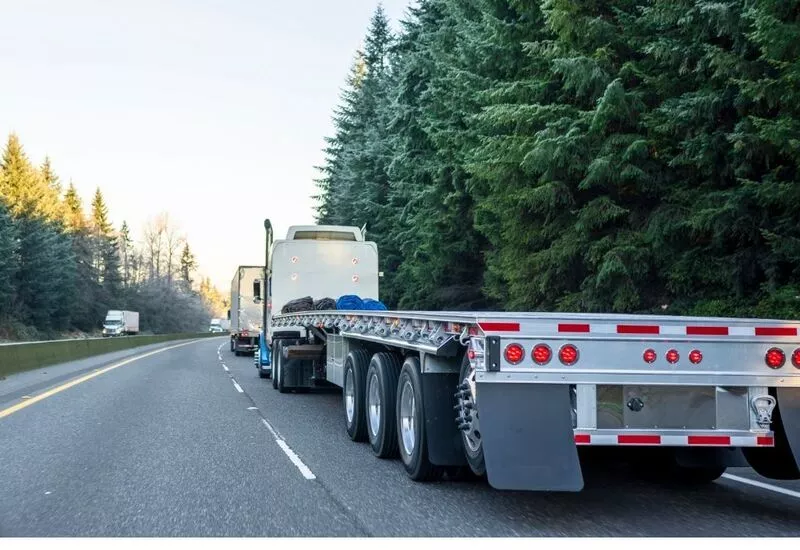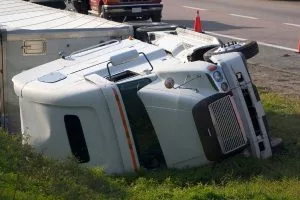
Backing up an 18-wheeler or other large truck is not easy, but this does not mean that accidents are justified. Likewise, while smaller commercial trucks, such as delivery trucks and utility trucks, often need to back up multiple times per day, this is not an excuse for making an occasional mistake. If anything, commercial truck drivers need to be more cautious when they shift into reverse, as the consequences of backing a commercial truck into a pedestrian or another vehicle can be devastating.
According to FleetOwner.com, reversing is the most common cause of commercial truck accidents. The publication also writes that “Reversing a tractor-trailer can be difficult even for those with experience – drivers may end up pressured by traffic, for example – and these low-speed collisions can lead to costly damages and higher insurance rates.” But, while higher insurance rates may be a primary concern for trucking companies, for those who are injured, the consequences of a reversing accident can be far more costly.
Who Is Liable When a Truck Driver Reverses Into a Vehicle or Pedestrian?
When does a truck driver reverse into a vehicle or pedestrian, who is liable? In the vast majority of cases, the truck driver will be at fault and the trucking company, delivery company, or utility company will be liable under the law of vicarious liability (which holds employers responsible for the acts of their employees). In addition to vicarious liability, these and other employers can face direct liability in truck reversing accidents as a result of their own negligence as well.
To illustrate the point, let’s take a look at some of the most common causes of a truck reversing accidents. In a typical scenario, a collision that occurs while a truck is backing up will be the result of one or more of the following:
- The truck driver fails to check all blind spots prior to and/or while reversing.
- The truck driver fails to use a spotter to back up when it is not possible to see behind the truck from the cab.
- The truck driver reverses at too high of a rate of speed.
- The truck’s reverse lights and/or warning signals are inoperable.
- The truck driver lacks sufficient training and/or experience to reverse the truck safely.
- The truck driver attempts to reverse while talking on the phone.
- The truck driver attempts to reverse while under the influence of alcohol or drugs.
With each of these causes, the truck driver’s employer will ultimately be liable in most cases. However, there are some possible exceptions. For example, if the truck driver is an owner-operator, then the truck driver’s insurance policy would likely come into play. Or, if the truck’s reverse lights are inoperable due to a defect or negligent repair work, then the truck’s manufacturer or the shop that performed the work could be liable. Depending on the circumstances involved, various other factors could potentially factor in as well; and, depending on what those factors are, other parties could share liability for the accident.
Is the Victim Ever At Fault When a Reversing Truck Causes an Accident?
 What about the victim? Is the victim ever at fault when a reversing truck causes an accident? In some cases, it is possible that a driver or pedestrian who is hit by a reversing truck could be deemed fully or partially at fault for his or her own injuries.
What about the victim? Is the victim ever at fault when a reversing truck causes an accident? In some cases, it is possible that a driver or pedestrian who is hit by a reversing truck could be deemed fully or partially at fault for his or her own injuries.
To be clear, this is the exception rather than the rule. Any time a commercial truck driver is behind the wheel, he or she has a legal duty to exercise due care to avoid causing a collision or injuring a pedestrian. Likewise, trucking companies and other businesses that own or lease commercial trucks have a legal duty to ensure that their drivers and their trucks are safe for the road. When a truck driver or a business fails to uphold its duty of care, then it can – and should – be held liable.
But, there are some instances in which even highly experienced truck drivers with well-maintained trucks will be unable to avoid injurious collisions. For example, this might be the case if:
- A driver attempted to speed around a reversing truck and misjudged the time or space available.
- A pedestrian walked or ran behind a reversing truck while remaining in the truck driver’s blind spot.
- Despite seeing that the truck was backing up, a driver or pedestrian otherwise put himself or herself at risk by moving behind the truck.
In these types of cases, in order to determine whether (or to what extent) the truck driver’s employer or insurance company is liable, it will be necessary to conduct a thorough investigation. Is there video footage from a traffic camera or business surveillance camera that shows what happened? Are there witnesses who can testify as to the chain of events? Is there other evidence available that can be used to prove liability? It will be important to answer these questions as soon after the accident as possible.
In cases in which the victim shares partial responsibility for an accident, liability is determined based upon each party’s percentage of fault – and different states have different rules. In Washington, for example, liability is apportioned based strictly on the parties’ percentage of fault. So, even if a pedestrian is deemed 90% at fault for moving behind a reversing truck, that pedestrian will still be entitled to recover 10% of his or her losses. In Oregon, however, the pedestrian would need to be less than 51% at fault in order to seek a financial recovery. Regardless of the circumstances involved, victims of reversing truck accidents need experienced legal representation in order to recover the financial compensation they deserve.
Request a Free Consultation with a Trucking Accident Law Firm at D’Amore Law Group
If you or a loved one has been involved in an accident involving a commercial truck, the attorneys of D’Amore Law Group can help you recover. To schedule a free, no-obligation consultation in Oregon or Washington, call our offices directly or get in touch with us online today.
